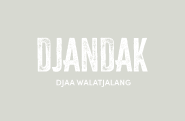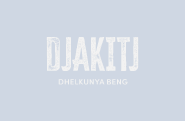The Dhelkunya Dja Land Management Board celebrates 10 years of joint management on Djandak (Dja Dja Wurrung Country) in an inspiring short film, Voices of Empowerment, which premiered yesterday at the 2025 AIATSIS Summit in Darwin.
The film highlights the cultural leadership of the Dhelkunya Dja Land Management Board (DDLMB), which was established under the Dja Dja Wurrung’s Recognition and Settlement Agreement (RSA) in 2013 with the State of Victoria.
Under the landmark RSA, six parks and reserves on Djandak were returned to Aboriginal Title, to be managed jointly between DJAARA (the Dja Dja Wurrung Clans Aboriginal Corporation) and the Victorian Government. The DDLMB is responsible for the delivery of a Joint Management Plan (JMP) to the Minister for the Appointed Land (six parks and reserves).
Launching Voices of Empowerment at the AIATSIS Summit, DDLMB Board Chair Uncle Graham Atkinson said Joint Management is not about token involvement; it is about genuine partnership.
“It is about ensuring that our voices lead decision-making and that our cultural and ecological knowledge informs how we care for Djandak [Dja Dja Wurrung Country],” Uncle Graham said.
“Through this approach, we have restored landscapes, protected sacred sites, and created a sustainable model for managing the Country that benefits not only our people but provides benefits for all who live on and rely on this land.”
Visitors to the six parks and reserves – Hepburn Regional Park, Paddys Ranges State Park, Kooyoora State Park, Wehla Conservation Reserve, Greater Bendigo National Park and Kara Kara National Park – can enjoy some of the outcomes of Joint Management: eye-catching entrance and interpretive signage, and upgraded visitor facilities including toilets, distinctive shelters and park furniture that’s designed, built and installed by Dja Dja Wurrung enterprise DJANDAK.
Joint Management provides career pathways and capacity building opportunities for Dja Dja Wurrung People – from working in the parks as Dja Dja Wurrung Rangers or delivering projects, to governance as a member of the Board.
But most of the Board’s work happens behind the scenes – and the journey has not been without challenges.
“Joint Management required us to navigate complex bureaucratic structures, secure resources, and ensure that all partners remained committed to our shared vision,” Uncle Graham said.
But over the ten years, the Board has seen a shift in mindset.
“Our partnerships with government agencies have evolved from mere compliance to genuine collaboration,” Uncle Graham said.
“There is now greater recognition of the value of Traditional Ecological Knowledge and an understanding that Indigenous-led conservation and land management are not just beneficial but essential to addressing the environmental challenges we face.”
Celebrate with us, watch the film: https://www.dhelkunyadja.org.au/#film










































































